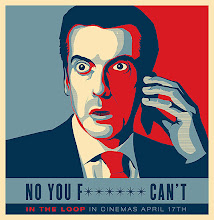Oscar History Part 2: 1941-1946
1941
Winner: How Green Was My Valley
My pick: Citizen Kane
Other notable films: The Maltese Falcon, Fantasia, The Lady Eve
One of the years that always gets mentioned when discussing "Oscar gets it wrong". John Ford's How Green Was My Valley is an alright film, but the legacy of Orson Welles' acting/writing/directing trifecta in Citizen Kane is unmatched. Its initial impact and controversy is likely what kept it from victory. John Huston also directed Humphrey Bogart as Sam Spade in The Maltese Falcon, Walt Disney released his showcase of classical music, Fantasia, and Preston Sturges directed a comedic romance between Barbara Stanwyck and Henry Fonda in The Lady Eve.
1942
Winner: Mrs. Miniver
My pick: Sullivan’s Travels (late 1941 release)
Other notable films: Yankee Doodle Dandy, The Magnificent Ambersons, Bambi
Preston Sturges is regarded as the first screenwriter, an established success in that field, to move into directing. He elevated the screwball comedy with his naturalistic dialogue, and Sullivan's Travels represents the best of his work. William Wyler's Mrs. Miniver was an important film at the time in its melodramatic depiction of the wartime costs for an English family, though I question whether it has aged well. Orson Welles' The Magnificent Ambersons is a powerful family drama, even its heavily studio-edited form, while Walt Disney continued his streak with the wonderful Bambi. And James Cagney gave us a classic performance in Yankee Doodle Dandy.
1943
Winner and my pick: Casablanca (late 1942 release)
Other notable films: Shadow of a Doubt
One of the years where "Oscar gets it right". Michael Curtiz's direction, the performances of all the actors, from Humphrey Bogart and Ingrid Bergman to Claude Rains to Peter Lorre. The dialogue. The music. Perfect. Also memorable is Alfred Hitchcock's Shadow of a Doubt, featuring Teresa Wright as a girl who's idyllic small town life is is shattered when she begins to suspect her favorite uncle, played by Joseph Cotten, is a murderer.
1944
Winner: Going My Way
My pick: Double Indemnity
Other notable films: Gaslight, The Miracle of Morgan’s Creek, Meet Me in St. Louis, Laura
Bing Crosby in Going My Way connected with audiences, but it's a little too safe for me. The great Billy Wilder writes and directs what may be the greatest film noir Double Indemnity, featuring a true femme fatale in Barbara Stanwyck. Ingrid Bergman gives a haunting portrayal of a woman in peril in Gaslight, Preston Sturges delivers another classic in The Miracle of Morgan's Creek, Judy Garland continues to charm in Meet Me in St. Louis, and Otto Preminger directs another great film noir in Laura.
1945
Winner and my pick: The Lost Weekend
Other notable films: Spellbound, To Have and Have Not (late 1944 release), The Life and Death of Colonel Blimp (UK, 1943)
This was a weaker year for films, but Billy Wilder had an Oscar coming to him for The Lost Weekend, about a writer on an alcoholic binge. Also notable was the work of Gregory Peck and Ingrid Bergman in Alfred Hitchcock's Spellbound, the great pairing of Humphrey Bogart and Lauren Bacall in To Have and Have Not, and Powell and Pressburger's satire The Life and Death of Colonel Blimp.
1946
Winner: The Best Years of Our Lives
My pick: Notorious
Other notable films: Children of Paradise (France, 1945), It’s a Wonderful Life, Brief Encounter (UK, 1945), Henry V (UK, 1944), The Big Sleep
One of the greatest years for films. You could easily make a case for William Wyler's The Best Years of Our Lives, which chronicled the home life of World War II veterans; it was the most sucessful film since Gone with the Wind. Marcel Carne's Children of Paradise, made during the Nazi occupation of France, chronicled the Parisian theatre scene of the 1820s and 30s, and maybe the greatest French film ever made. Frank Capra and Jimmy Stewart make film magic in It's a Wonderful Life, Laurence Olivier stars in and directs Shakespeare's Henry V, Bogart and Bacall continue their great chemistry in The Big Sleep, and David Lean directs the tragic British romance Brief Encounter. But my pick is Alfred Hitchcock, a consisently great filmmaker, directing Cary Grant, Ingrid Bergman, and Claude Rains in the espionage thriller/romance Notorious. It represents maybe the best of Hitchcock's work for the era.


1 Comments:
This stirred some memories so i just rewatched Notorious. Ingrid Bergman is simply fantastic. And her role - standard 1940s "do it for love" fare notwithstanding - seems pretty revolutionary for its time, in terms of strong, independent female characters. Just a great film, all around.
Post a Comment
Subscribe to Post Comments [Atom]
<< Home